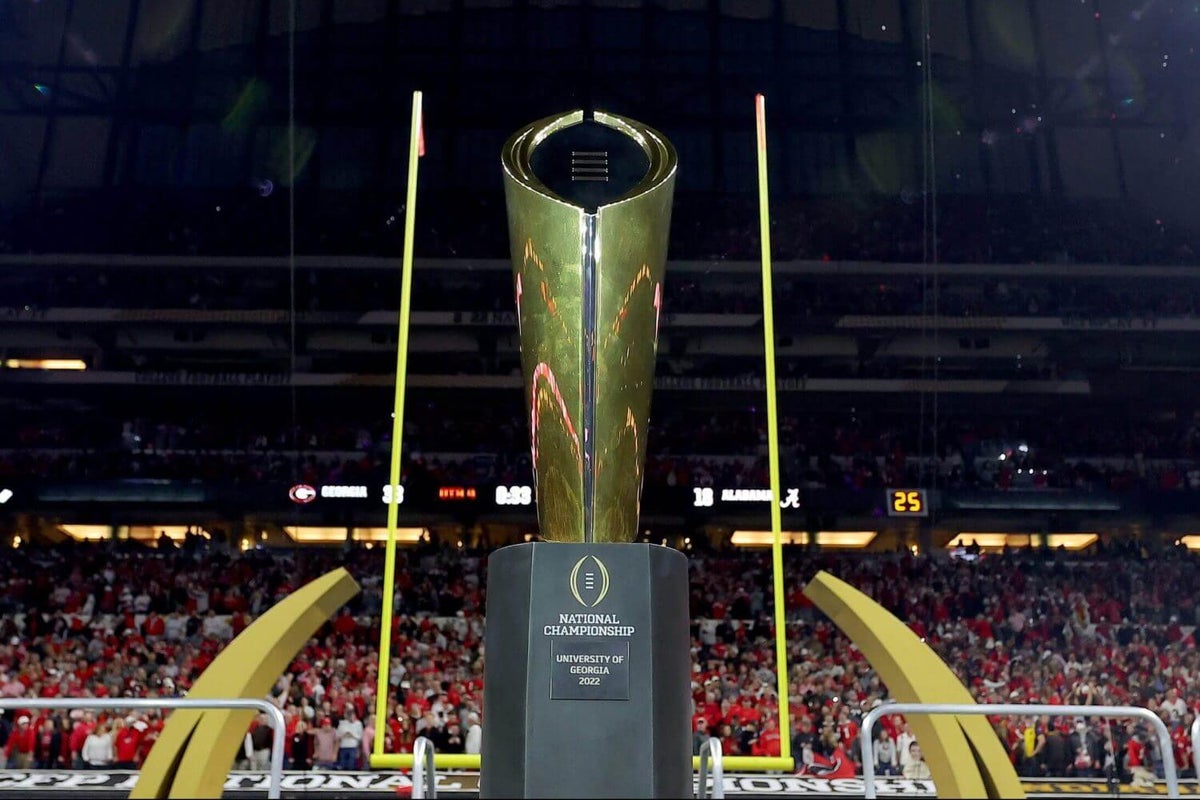The Tuesday night reveal of the College Football Playoff rankings is sports television’s most expansive word salad bar.
ESPN’s weekly romp through the selection committee’s latest Top 25 is littered with vague analysis and poorly defined terminology used to justify Team A being ahead of Team B or vice versa.
In a perfect world, the selection committee chair — this season, that is Michigan athletic director Warde Manuel — when asked to explain why Team A is ranked higher than Team B, would simply say, “Because the committee believes Team A is better.”
Alas, that would not make good television, nor would it satiate the insatiable need fans and media have for a consistent and thorough accounting of every decision, which in actuality is impossible when doing something as subjective as ranking 25 college football teams.
Fresh off of Tuesday night’s rankings reveal squeezed in between two college basketball games and with three more rankings left until the only one that really counts on Dec. 8, here’s a translation guide to help you follow along.

GO DEEPER
College Football Playoff rankings, ranked: Texas has done what to deserve this?
Metrics
Game control
A deep cut from the early years of the College Football Playoff, referring to how dominant a team’s performances are compared to another team with the same number of wins. Blowout wins are good. Close wins in which you never trail are … also good? Lucky breaks are bad.
Translation: ESPN has an actual advance metric called Game Control (Ole Miss is currently No. 1). Its official definition: “Reflects chance that an average Top 25 team would control games from start to end the way this team did, given the schedule.” Few know how it’s calculated or what it measures, and the committee doesn’t actually use it, but never miss an opportunity for product placement.
Eye test
Translation: “None of the data points support ranking Team A above Team B, but Team A has running backs bigger than Team B’s defensive ends, so how do you think it would go if they played?”
Body of work
The go-to explanation for not punishing a team for a particularly embarrassing or recent setback.
Translation: “Yes, Notre Dame lost to Northern Illinois, but …”
Ranked wins
A self-referential strength-of-schedule shorthand: When you played the other teams we think are the best teams in the country, how did you do?
Translation: “These 25 teams are good. Team 26, for some reason, is not.”
Victories over teams with a winning record
A less self-referential strength-of-schedule shorthand.
Translation: “They beat UConn.”
Strength of schedule
Translation: “Do you play in the SEC?”
Complete team
A compliment issued to Team A when trying to avoid pointing out Team B’s obvious flaw.
Translation: “A team not coached by Lincoln Riley.”
Methodology
Committee members check their hats at the door
Outside the room where the selection committee meets is a literal hat rack, a symbolic reminder for a group of athletic directors and former players and coaches who all have connections to schools under discussion to set those aside when evaluating teams.
Translation: “Conflicts of interest? What conflicts of interest?”
Best vs. most deserving
It’s the ultimate committee Rorschach test: Is the committee’s job to reward the teams that accomplished the most during the season, or the ones that look like they could accomplish the most in the postseason?
Translation: “We’re pretty sure Team A would beat Team B, but Team B beat No. 21 in the rankings, and see above re: ranked wins.”
Blank piece of paper
The image the committee chair often cites to remind fans that the committee builds its rankings from scratch each week.
Translation: “The committee is in no way influenced by the previous rankings, despite all available evidence about human behavior and memory.”
“The committee doesn’t project or look ahead when ranking teams.”
Translation: “We think Ohio State is going to beat Indiana, too.”
Body clocks
A classic excuse for a subpar performance by a highly ranked team that had to cross multiple time zones to play on the road.
Translation: “Wait, Cal is in the ACC now?”
(Photo: Kevin C. Cox / Getty Images)

